Tina Zhu
Human-centered mechanism design with Democratic AI
Jan 27, 2022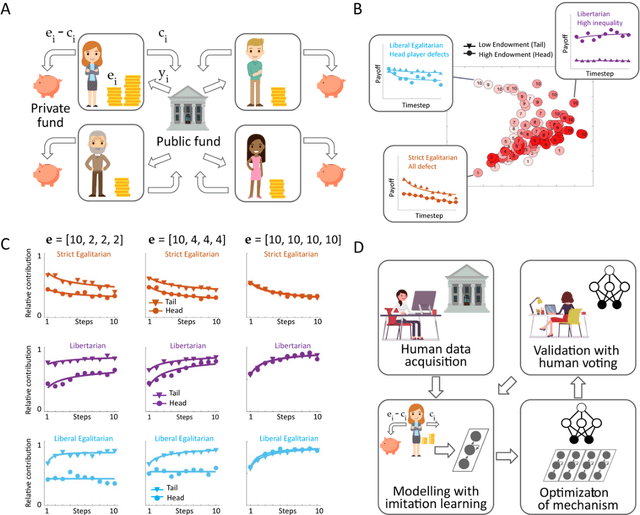
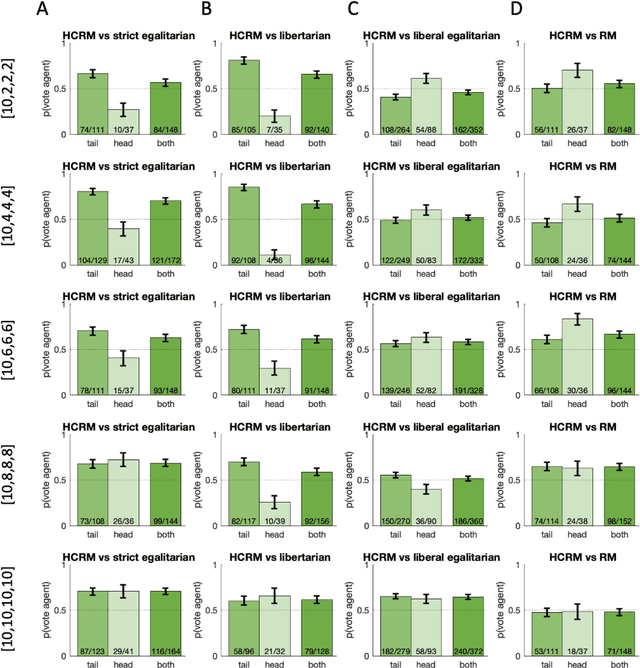
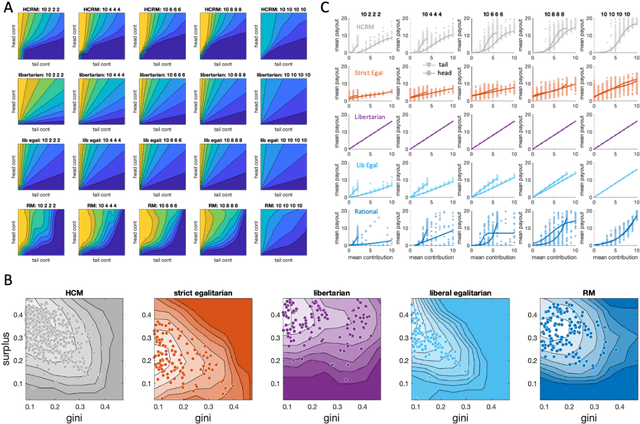
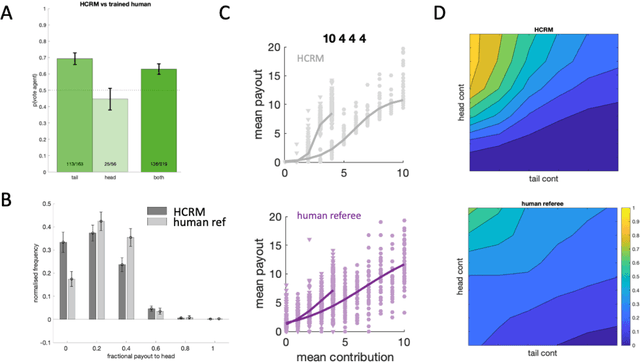
Abstract:Building artificial intelligence (AI) that aligns with human values is an unsolved problem. Here, we developed a human-in-the-loop research pipeline called Democratic AI, in which reinforcement learning is used to design a social mechanism that humans prefer by majority. A large group of humans played an online investment game that involved deciding whether to keep a monetary endowment or to share it with others for collective benefit. Shared revenue was returned to players under two different redistribution mechanisms, one designed by the AI and the other by humans. The AI discovered a mechanism that redressed initial wealth imbalance, sanctioned free riders, and successfully won the majority vote. By optimizing for human preferences, Democratic AI may be a promising method for value-aligned policy innovation.
Alchemy: A structured task distribution for meta-reinforcement learning
Feb 04, 2021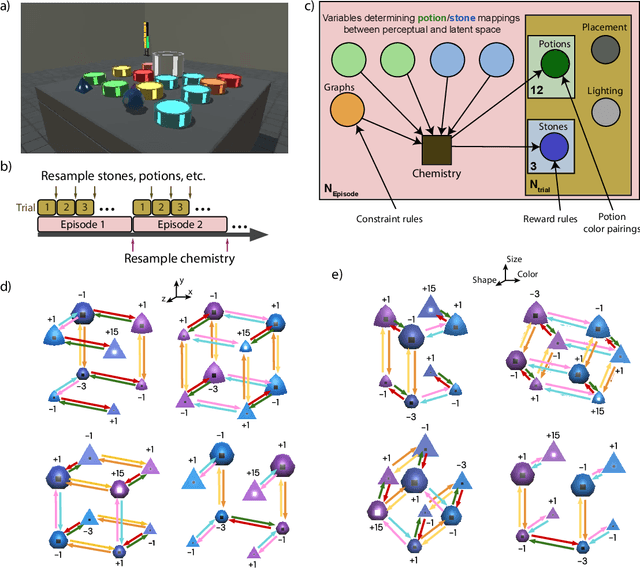
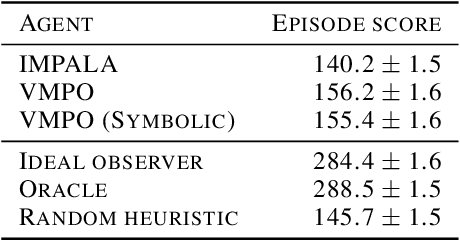

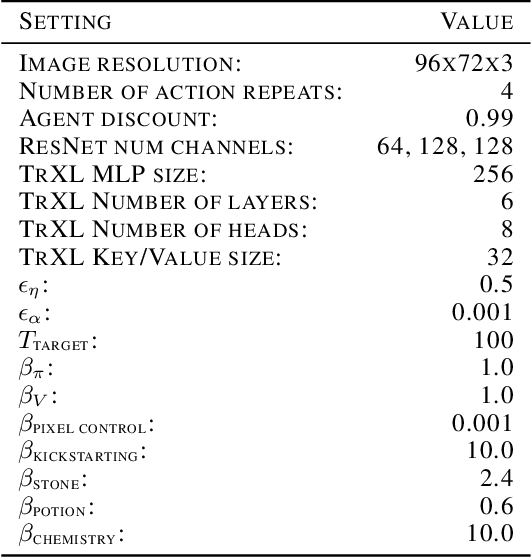
Abstract:There has been rapidly growing interest in meta-learning as a method for increasing the flexibility and sample efficiency of reinforcement learning. One problem in this area of research, however, has been a scarcity of adequate benchmark tasks. In general, the structure underlying past benchmarks has either been too simple to be inherently interesting, or too ill-defined to support principled analysis. In the present work, we introduce a new benchmark for meta-RL research, which combines structural richness with structural transparency. Alchemy is a 3D video game, implemented in Unity, which involves a latent causal structure that is resampled procedurally from episode to episode, affording structure learning, online inference, hypothesis testing and action sequencing based on abstract domain knowledge. We evaluate a pair of powerful RL agents on Alchemy and present an in-depth analysis of one of these agents. Results clearly indicate a frank and specific failure of meta-learning, providing validation for Alchemy as a challenging benchmark for meta-RL. Concurrent with this report, we are releasing Alchemy as public resource, together with a suite of analysis tools and sample agent trajectories.
Inequity aversion improves cooperation in intertemporal social dilemmas
Sep 27, 2018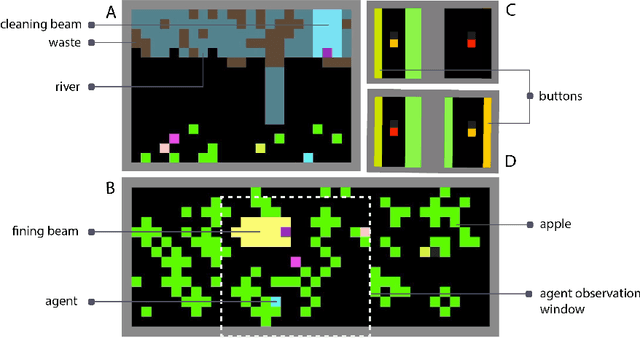
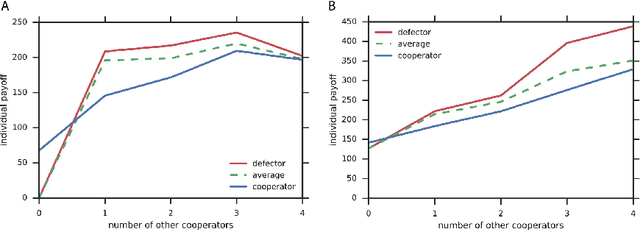
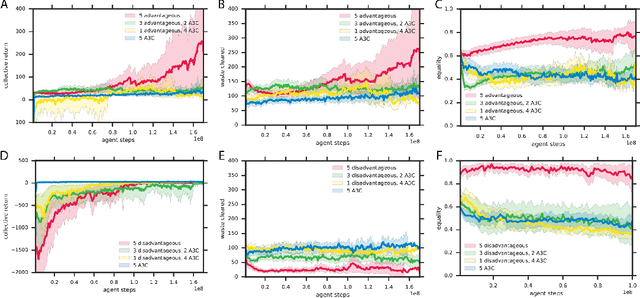
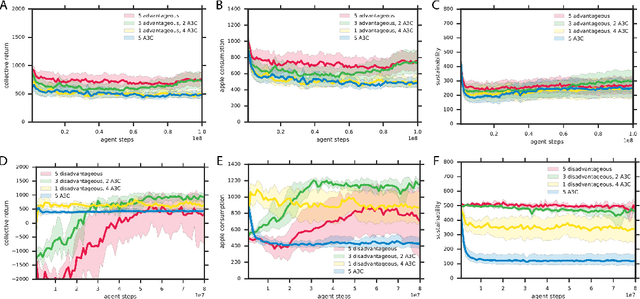
Abstract:Groups of humans are often able to find ways to cooperate with one another in complex, temporally extended social dilemmas. Models based on behavioral economics are only able to explain this phenomenon for unrealistic stateless matrix games. Recently, multi-agent reinforcement learning has been applied to generalize social dilemma problems to temporally and spatially extended Markov games. However, this has not yet generated an agent that learns to cooperate in social dilemmas as humans do. A key insight is that many, but not all, human individuals have inequity averse social preferences. This promotes a particular resolution of the matrix game social dilemma wherein inequity-averse individuals are personally pro-social and punish defectors. Here we extend this idea to Markov games and show that it promotes cooperation in several types of sequential social dilemma, via a profitable interaction with policy learnability. In particular, we find that inequity aversion improves temporal credit assignment for the important class of intertemporal social dilemmas. These results help explain how large-scale cooperation may emerge and persist.
Relational inductive bias for physical construction in humans and machines
Jun 04, 2018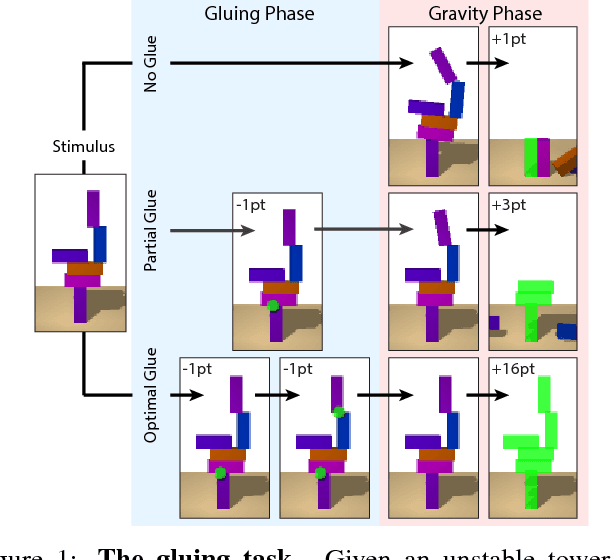
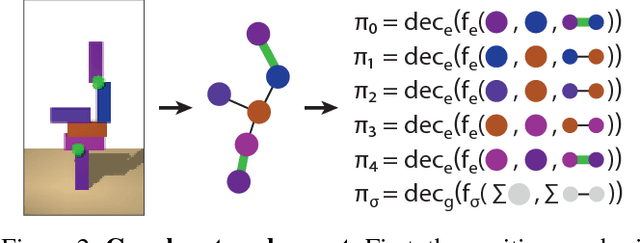
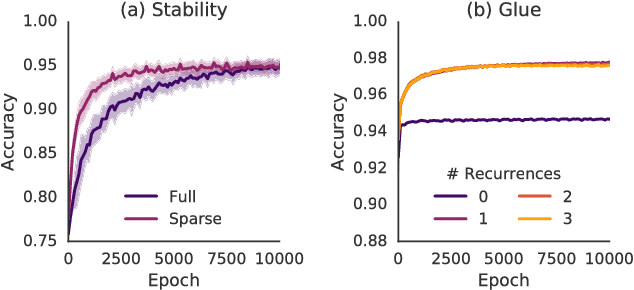
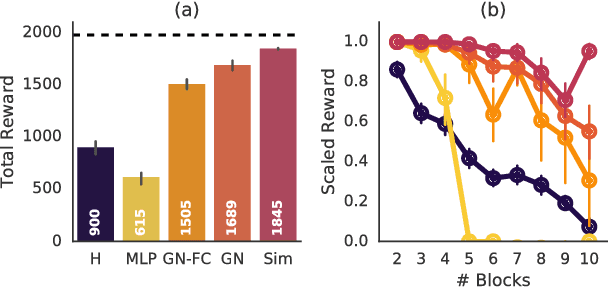
Abstract:While current deep learning systems excel at tasks such as object classification, language processing, and gameplay, few can construct or modify a complex system such as a tower of blocks. We hypothesize that what these systems lack is a "relational inductive bias": a capacity for reasoning about inter-object relations and making choices over a structured description of a scene. To test this hypothesis, we focus on a task that involves gluing pairs of blocks together to stabilize a tower, and quantify how well humans perform. We then introduce a deep reinforcement learning agent which uses object- and relation-centric scene and policy representations and apply it to the task. Our results show that these structured representations allow the agent to outperform both humans and more naive approaches, suggesting that relational inductive bias is an important component in solving structured reasoning problems and for building more intelligent, flexible machines.
 Add to Chrome
Add to Chrome Add to Firefox
Add to Firefox Add to Edge
Add to Edge